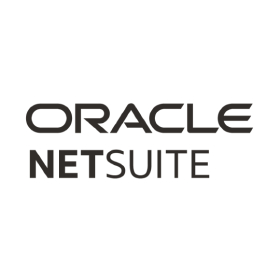The food and beverage (F&B) industry deserves immense credit for its part in reducing global malnourishment from 50% in 1945 to 10.8% in 2017. Food, alongside education and health, are basic human needs, and F&B businesses and international policymakers have dedicated enormous efforts to research and execute policies and technologies that would create a smooth global food supply chain to keep the stomachs of the population filled.
However, the F&B industry in its present form is one that is vast and complex, spanning various verticals, and serving beyond the objective of tackling poverty and undernourishment. This is a market that is projected to grow to US$8 trillion by 2025, which is approximately 10% of the global GDP.
Just like most industries in the business world, the F&B industry had already been subject to much disruption even before the Covid-19 pandemic. The arrival of online food and delivery platforms such as GrabFood and Foodpanda had long threatened to upend the F&B service industry which consist of dine-in and takeaway eateries, and quick-serve-restaurants (QSR).
As the shutters came down and dine-ins were prohibited as part of lockdown measures to curb the spread of Covid-19, customers migrated in droves to embrace online ordering and delivery platforms.
The F&B online orders and delivery sector in Southeast Asia is expected to grow to US$20 billion in 2025, and Malaysia is expected to account for RM2 billion of the amount in the same year. In Singapore, the government, as part of the 2021 Budget, announced SG$1 billion in co-funding for F&B businesses to undertake digitalisation as part of the Hawkers Go Digital initiative.
Meanwhile food manufacturing businesses which consist of consumer packaged (CPG), frozen food and a whole lot more are grappling with the supply chain crisis. There is now what appears to be a generational shift taking place in the F&B manufacturing industry from a focus solely on the just-in-time (JIT) approach, to a more hybrid JIT and just-in-case (JIC) approach.
The supply chain crisis which began after the closure of borders following the strict implementation of lockdowns has been further exacerbated by the Russian invasion of Ukraine and the subsequent eruption of war.
Regardless of the nature of your F&B business – whether you are a F&B services provider such as a QSR, or a food manufacturer – the need to embrace cloud technology is more pressing now, than ever before. The pandemic has unleashed a “stop-start” situation to the global economy, while the war seems to indicate perpetual supply chain issues if manufacturing F&B businesses do not equip themselves with the best that cloud technology has to offer.
Below we look at some of the benefits that the implementation of solutions can offer to businesses in the F&B industry:
Real-time visibility
Whether you operate a restaurant chain or you are manufacturing food, having a 360-degree, real-time view of your business is critical. Cloud systems, by virtue of architecture, provide F&B businesses with live data of transactions.
If you are the owner of a food chain, you can easily spot customer trends and know which of your dishes are popular on each of your outlets. If you are a manufacturer dealing with a desperate time like the pandemic, you would be able to see that your product is best delivered to retailers as opposed to restaurants which are closed due to lockdowns.
Procurement
The pandemic illustrated the flaws in the just-in-time strategy (JIT). However, this does not mean that just-in-case (JIS) is the right strategy. The best-in-class cloud solutions for F&B businesses often come with predictive capabilities for procurement that enable you to manage your inventories and adopt the right strategies for the right times.
Cloud solutions such as enterprise resource planning (ERP) software come with predictive tools that help you take the right approach to stocking your inventories. Let’s face it, in the business of food and beverage, most things are perishable. You do not want to overstock and pay for storage costs only for the items to go bad. Modern day cloud solutions allow you to drill down data right to the smallest details to enable you to make the best decisions for your F&B business.
A study by Deloitte titled “A shock to the food system: Lessons learned from the Covid-19 pandemic” says: “Adopting technologies that enable supply chain visibility is essential. Improved visibility enables organisations along the value chain to anticipate vulnerable points in the supply chain, shifting from a reactive mode to one that is more predictive. This allows these organisations to implement risk mitigation measures quickly and allocate resources to areas most under stress before they break.”
Perfect Pricing
How do you know that the packet of crisps you’re selling is achieving the 20% profit margin that is intended by you. Have you included all the costs involved in making the crisps? If so, how sure are you? The fact is, because of the varying units of measurement to make a food item, it is almost impossible for you to say with absolute certainty if the prices of your products are reaping the profits they deserve, or if your pricing is competitive.
Cloud solutions for F&B businesses can keep track of every single of the ingredients that goes into the food item you are making and give you the most accurate measure of a profitable pricing all based on raw data. Systems like these also incorporate other costs incurred such as the costs to pack the product.
Single Source of Truth
It is normal for fast-growing food and beverage companies to have a set of different solutions to manage different functions. However, when operating in the digital age, these legacy systems give you the headache of managing data from disparate sources.
For a F&B business with aspirations to thrive and stay ahead of competitors in the digital, it is of paramount importance for them to equip their business with the best that cloud solutions have to offer. Most cloud solutions for F&B businesses give you an integrated view of all your business processes. In addition to this, you can also store all your recipes in one central repository.
Automate Financial Processes and Get a Consolidated View of Accounts
It can sometimes be perplexing to note that many big food and beverage companies still rely on manual entries of data to manage their finances. In an E-commerce market where complex transactions take place at a rapid pace, this can be a recipe for disaster.
Modern day cloud solutions in the market allow F&B businesses to automate these key processes which can be riddled with human errors and data duplication when manually managed. Cloud solutions also allow you to consolidate your finances from all your different outlets and subsidiaries easily. In fact, many of these processes can also be automated to capture every single transaction across all your outlets or subsidiaries.
Unlock Key Insights
Having your finger on the pulse to predict changing consumer demand is extremely important for businesses operating in the present climate that poses the twin threats of the pandemic and war. As inflation hits consumers hard, most may focus on having their main meals with little money to spare for snacks or other non-essential food and beverages.
How do you position yourself as an F&B business to be able to capitalise on these changing consumer demands? How do you know when to reduce the production of crisps and focus instead on increasing the production of the canned food products you sell? Well, modern day cloud systems are designed with capabilities such as artificial intelligence (AI) that spot trends and allow you to respond fast to changing consumer needs.

The world’s No. 1 true-cloud enterprise resource planning (ERP) system has helped hundreds of businesses in the food and beverage (F&B) industry automate manual processes and deliver unprecedented visibility.

FernSPEED is a built-for-Oracle NetSuite (BFN) cloud solution that caters to the specific demands of the F&B industry. FernSPEED helps F&B businesses manage unit measures of handling, store recipe in one single system, and get a 360-degree, real-time of their business. With FernSPEED you can store the detailed recipes and ingredients for each and every delicacy you offer.

TenderBoard acts as a centralised system in business-to-business (B2B) transactions by overseeing the entire procurement process. This includes helping F&B match with a list of suppliers and then facilitating the procurement process, including Request for Proposal (RFP), Request for Information (RFI), Request for Quote (RFQ), and Request for Bid (RFB).
TenderBoard also facilitates easy integrations of its system with various other cloud solutions that you may use in your organisation such as the Oracle NetSuite ERP system.


